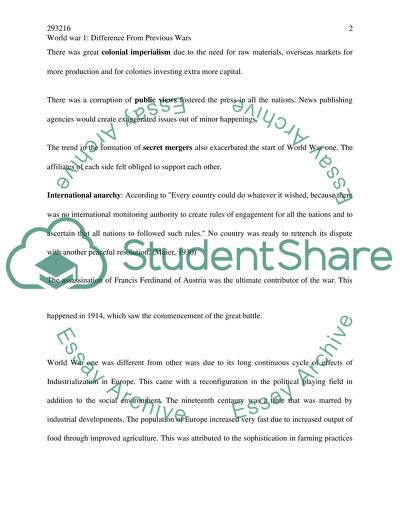Cite this document
(“World War I Master Essay Example | Topics and Well Written Essays - 1500 words”, n.d.)
World War I Master Essay Example | Topics and Well Written Essays - 1500 words. Retrieved from https://studentshare.org/history/1531685-world-war-i-master-essay
World War I Master Essay Example | Topics and Well Written Essays - 1500 words. Retrieved from https://studentshare.org/history/1531685-world-war-i-master-essay
(World War I Master Essay Example | Topics and Well Written Essays - 1500 Words)
World War I Master Essay Example | Topics and Well Written Essays - 1500 Words. https://studentshare.org/history/1531685-world-war-i-master-essay.
World War I Master Essay Example | Topics and Well Written Essays - 1500 Words. https://studentshare.org/history/1531685-world-war-i-master-essay.
“World War I Master Essay Example | Topics and Well Written Essays - 1500 Words”, n.d. https://studentshare.org/history/1531685-world-war-i-master-essay.


